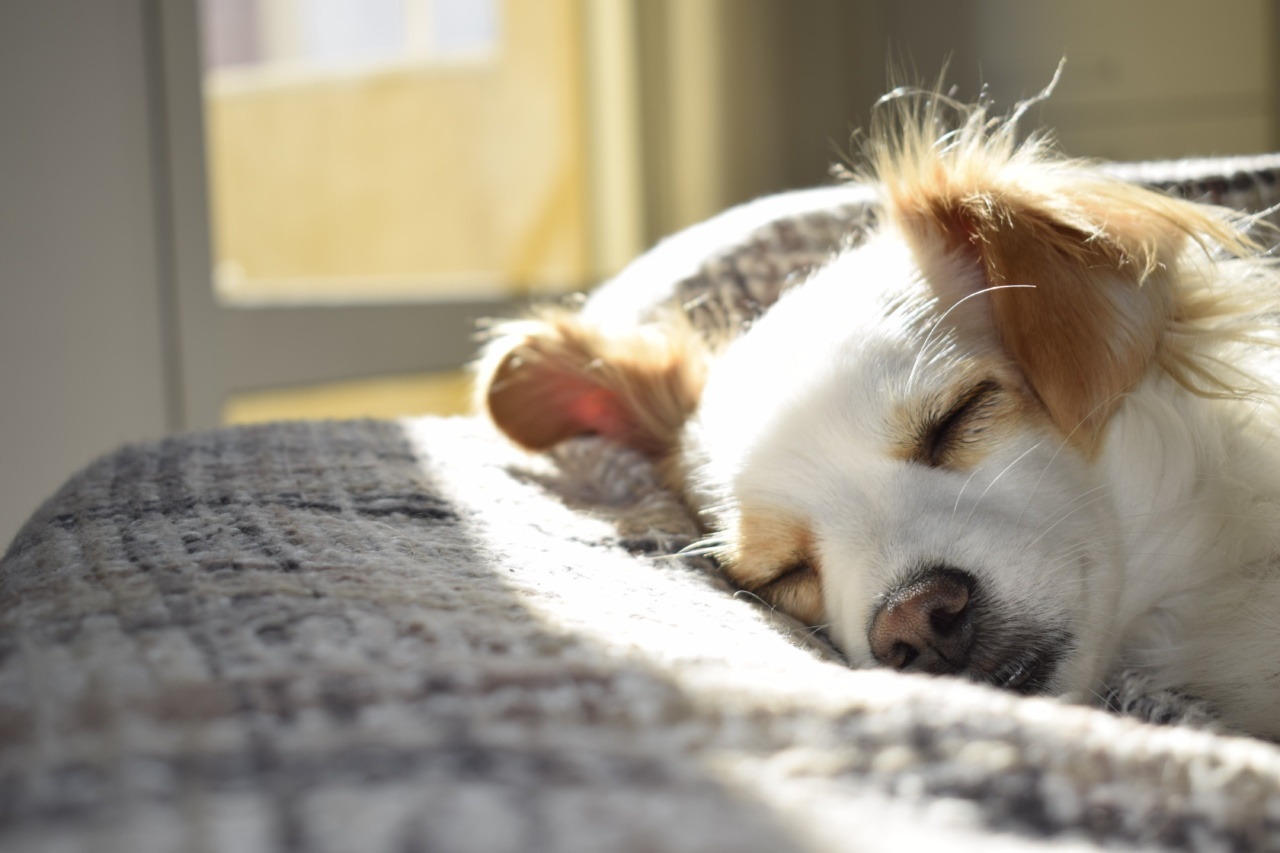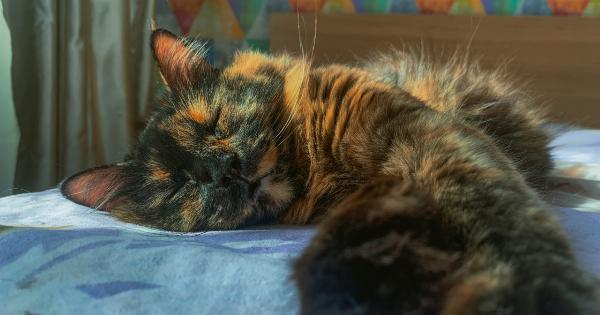Having a furry friend can bring so much joy and companionship to our lives. They are there to greet us after a long day, provide us with unconditional love, and offer a sense of comfort.
However, as much as we adore our pets, there can be times when they disrupt our sleep patterns and make it difficult for us to get a good night’s rest. If you find yourself struggling to sleep because of your pet, you are not alone.
Many pet owners face similar challenges, but there are steps you can take to improve your sleep quality without compromising the bond you share with your four-legged companion.
The sleep disturbance caused by pets
While pets bring immense joy to our lives, they can also be the cause of sleep disturbances. Here are a few ways in which your pet might be affecting your sleep:.
1. Noisy habits
Whether it’s your dog barking at every passing car or your cat scratching at the door to be let in, pets can be noisy creatures. These sounds can disrupt your sleep, especially if you are a light sleeper.
Noisy habits can be a challenge, but with proper training and creating a sleep-friendly environment, you can reduce their impact on your sleep quality.
2. Bed hogging
It’s no secret that pets love to snuggle up with their owners. While their presence can be comforting, it can also lead to a lack of personal space on the bed.
If your pet takes up more room than you do, it’s no wonder you might be tossing and turning all night. Establishing boundaries and providing them with their own comfortable sleeping spot can help alleviate this issue.
3. Allergies and asthma
For some individuals, pets can trigger allergies and asthma symptoms, which can make it challenging to sleep peacefully. Pet dander, saliva, and urine can be allergens that affect your respiratory system.
If you suspect allergies or asthma, it is crucial to see a doctor who can help you manage your symptoms and improve your sleep quality.
4. Restless behavior
Just like us, pets can sometimes have trouble settling down and relaxing at night. Restless behavior, such as pacing or constant movement, can be disruptive to your sleep.
Ensuring your pet gets enough physical and mental stimulation during the day and creating a calming bedtime routine can help promote better sleep for both of you.
5. Nighttime accidents
If you have a young or elderly pet who is still house training or experiencing bladder control issues, nighttime accidents may be a common occurrence.
The need to clean up messes or tend to your pet’s needs can disrupt your sleep and leave you feeling groggy the next day. Consistent training, regular bathroom breaks before bedtime, and investing in products designed to assist with accidents can help address this issue.
6. Separation anxiety
Pets are social creatures and can experience separation anxiety when their owners are not around. This anxiety can manifest in constant whining, scratching at doors, or even destructive behavior.
If your pet struggles with separation anxiety, seeking the help of a professional trainer or behaviorist can aid in addressing this issue and improving your sleep.
Tips for getting a good night’s sleep with your pet
Now that we have identified some of the common ways in which your pet might be impacting your sleep, here are some helpful tips to ensure you and your furry friend can coexist peacefully at bedtime:.
1. Establish a routine
Pets thrive on routine, and having a consistent schedule can benefit their behavior, as well as your sleep. Establish fixed feeding times, play sessions, and bedtime routines to help them settle down and adjust their energy levels accordingly.
2. Create a comfortable sleeping spot
Providing your pet with a cozy and comfortable sleeping spot of their own can minimize the chances of them taking over your bed.
Invest in a pet bed that suits their preferences, with enough cushioning and support to ensure a good night’s sleep for them.
3. Use calming techniques
Introduce calming techniques to help your pet relax before bedtime. This can include gentle massages, soothing music, or the use of pheromone products designed to promote a sense of tranquility.
Be consistent with these techniques to develop a calming bedtime routine.
4. Create a sleep-friendly environment
A sleep-friendly environment is essential for both you and your pet. Ensure the room is dark, quiet, and at a comfortable temperature. Consider using blackout curtains, earplugs, or a white noise machine to block out any disruptive sounds or stimuli.
5. Get regular exercise
Regular exercise can tire out your pet and help them release any excess energy. Engage in activities that stimulate them physically and mentally, such as walks, playtime, and puzzle toys.
A tired pet is more likely to settle down and sleep peacefully throughout the night.
6. Consult a veterinarian
If your pet’s disruptive behavior persists despite your efforts, it might be beneficial to consult a veterinarian.
They can rule out any underlying medical conditions and provide guidance on behavioral training or recommend medications or supplements that can aid in calming your pet.
7. Seek professional help
If you have tried various strategies but still struggle to get a good night’s sleep due to your pet, seeking professional help from a certified animal behaviorist or sleep specialist might be worth considering.
They have the expertise to identify the root cause of the problem and provide customized solutions to improve your sleep quality.
The benefits of sleeping with your pet
While it’s important to address any sleep disturbances caused by your pet, it’s also essential to acknowledge the benefits they bring to your sleep and overall well-being:.
1. Stress relief
Pets have a remarkable ability to reduce stress levels. Their presence alone can lower blood pressure and release endorphins, helping you relax and unwind after a long day.
2. Security and comfort
Having your pet nearby can offer a sense of security and comfort. Their warmth and constant companionship can create a soothing environment that promotes better sleep.
3. Reduced loneliness
For those living alone, pets can provide much-needed companionship. The feeling of loneliness can be alleviated when you have a furry friend to share your bed with.
4. Improved mental health
Pets have been known to improve mental health and well-being. They can help reduce symptoms of depression and anxiety, which can often interfere with sleep. The emotional bond you share with your pet can contribute to a healthier mindset overall.
Conclusion
Your pet is undoubtedly a cherished member of your family, but it’s essential to address any sleep disturbances caused by their presence.
By implementing the tips mentioned above and seeking professional help when necessary, you can strike a balance between enjoying the benefits of sleeping with your pet while maintaining a good night’s sleep. Remember, with proper training, routines, and care, you and your pet can coexist harmoniously, both during the day and at bedtime.




























